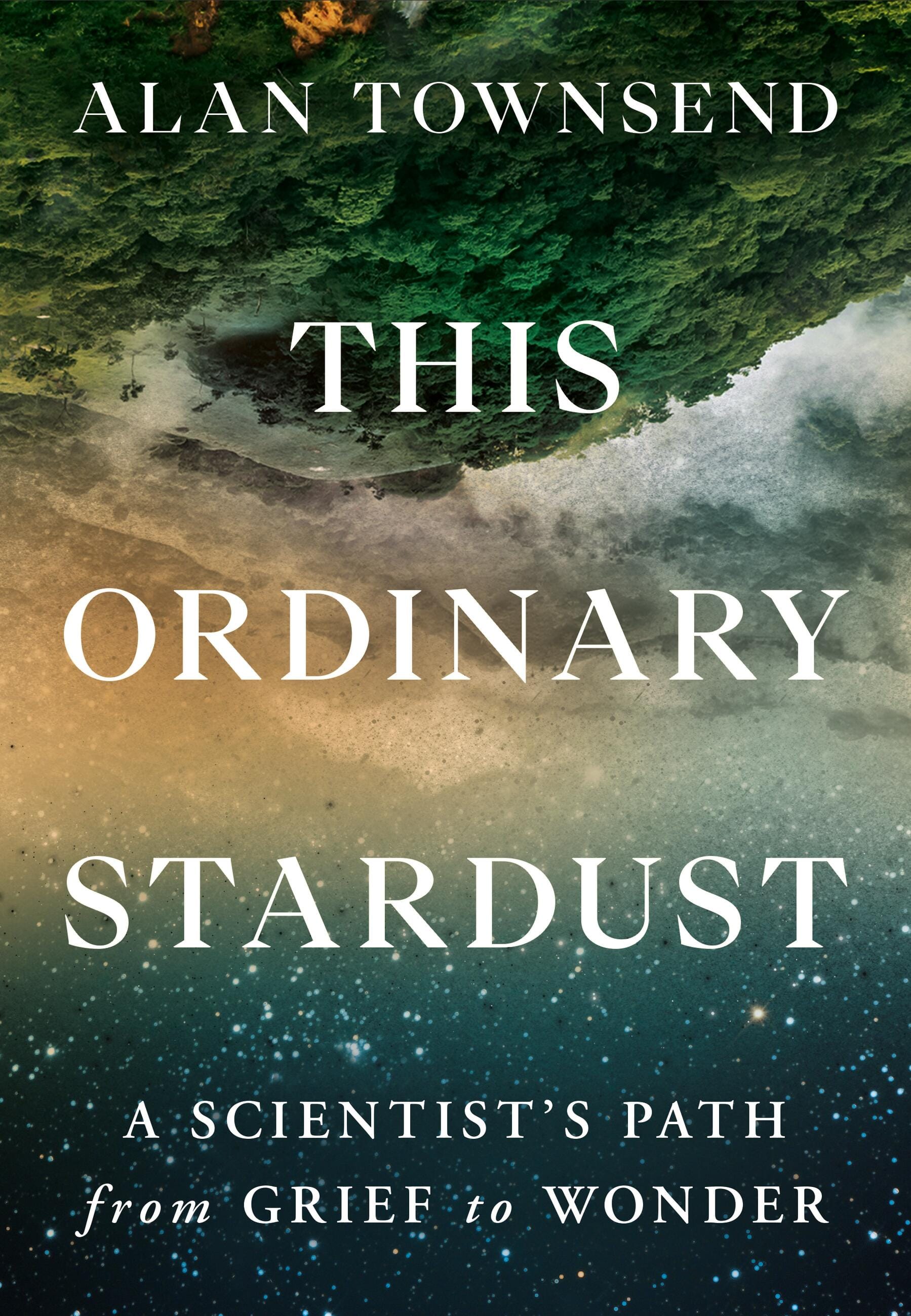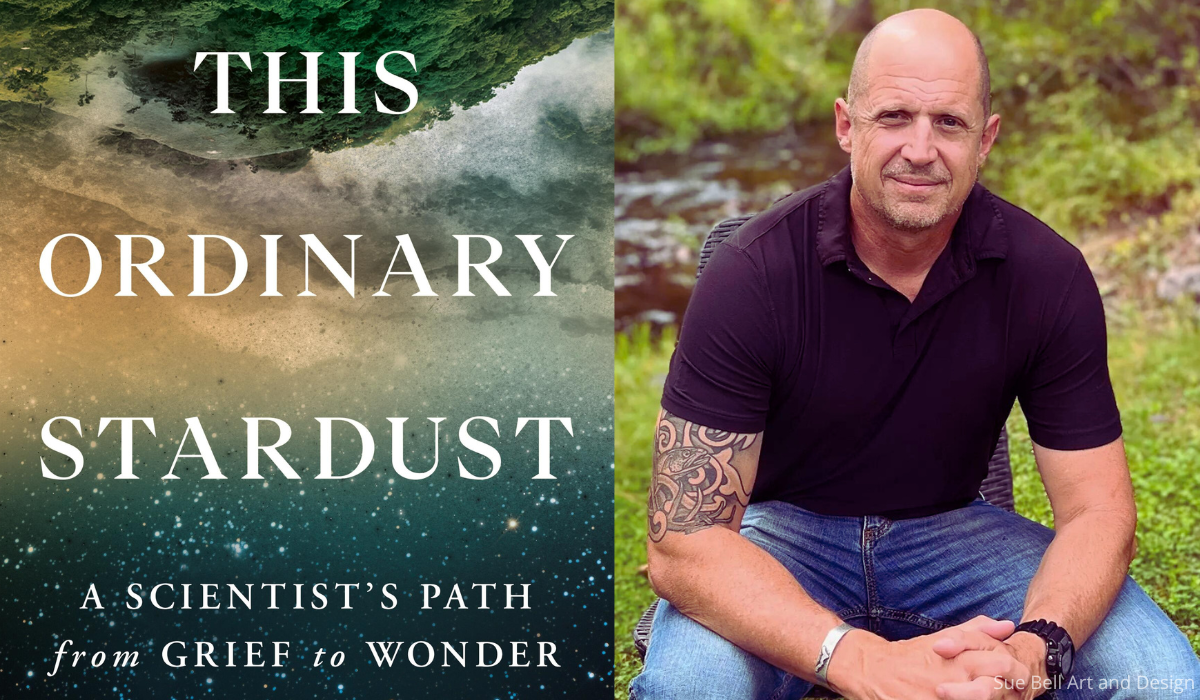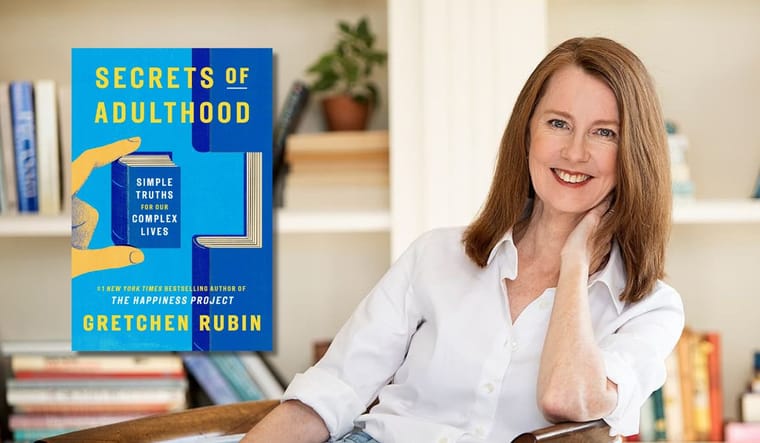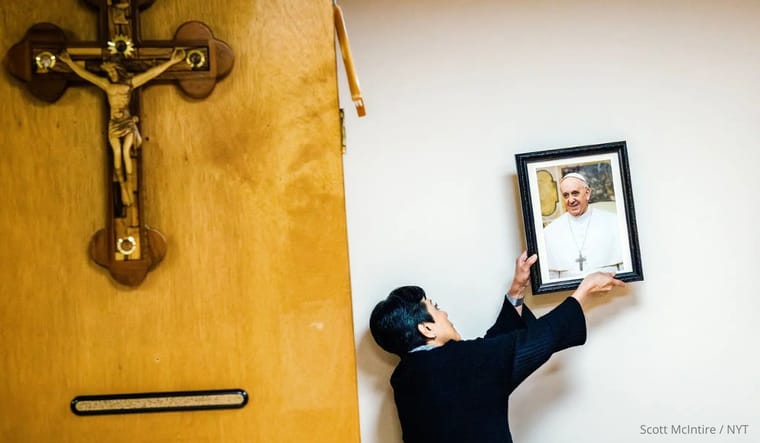This Scientist Found Faith in the Depths of Grief—and He’s Giving Us His Roadmap
Alan Townsend has faced the unthinkable.
At just shy of 4 years old, his daughter, Neva, was diagnosed with a rare brain tumor. Six months later, his wife, Diana, was also diagnosed with brain cancer. And while Neva overcame her medical scare, Diana died of her glioblastoma soon after her diagnosis.
How does one go on after that kind of tragedy? For Townsend, an environmental scientist, it was doubling down on his professional passion: He started using scientific inquiry as a lens to help him find peace and make meaning out of his darkest times.
In his stunning new memoir, This Ordinary Stardust, Townsend shows all of us how he trailblazed a path from grief to wonder and in doing so, helps us discover how we might do the same.
A CONVERSATION WITH ALAN TOWNSEND, PHD
Can you describe some of the moments after your daughter—and months later, your wife—developed brain cancer?
Our daughter Neva’s diagnosis wasn’t a complete shock. There were signs leading up to it—these progressive steps we were seeing. When the news came back that she had a pretty rare tumor, that was really rough. That night, sitting with that reality, was particularly difficult. Neva was 4 years old at the time.
Within a couple weeks, Neva was in for a super long brain surgery. And then about six months after that, Diana was diagnosed with an unrelated, unexpected brain tumor. In Diana’s case, symptoms came up quickly. And we never in a million years thought it could be a brain tumor. It was a complete shock.
I think most people can’t imagine how they’d go on …
There are a lot of people who look at our story and say, “Oh my god, that’s so crazy. How could you possibly go on?” But one of the lessons I’ve taken from this is that none of us get through life without hardship and grief and loss. It’s just part of the human condition. And going through those journeys, in and out of hospitals a lot, you see person after person who’s in the same boat thinking, “How can I possibly get through this?” And then, for the most part, they do.
In your memoir, you write about how your understanding of the interconnectedness of all creation was a salve for you. What do you think all of us can learn from the interconnectedness you write about?
We live in this increasingly polarized society, ironically with the tools of scientific understanding being used for ill to drive that polarization more and more. Part of my goal in writing this book was to say, “Hey, wait, let’s think about science through a different lens here.”
I think everybody can have their own lens. For me, as an environmental scientist, it is my job to study these connections within the natural world. And they were a real mirror for me, reminding me of that interdependence and how critical it is. I get that it’s a cliché, but it’s real.
One of the things that worries me most as a society is this progressive loss of community that we see in so many ways, and reinforcing communities that are about narrow like-minded thought as opposed to actual connection across difference. Looking at the natural world can remind us how critical that is. The world around us does not survive, does not work, without those connections that are really varied in time and space across all kinds of things.
Why did you title your book This Ordinary Stardust?
It’s my job to study the elements that form life and how they move through the world. And those elements—the ones that form life, the ones that form everything on our planet—is ultimately the product of the heat and activity of stars that are now long dead. We got our dose of all of those early on in the Big Bang and then stellar activities that happened soon after, and that’s what we have for all of history and all of time.
And so, it really is the case that those elements are part of every story the world has ever written, and ever will write and they pass in and out of us. And that became a different source of comfort for me, almost like a form of immortality when I tried to kind of get through my own loss.
What does it mean to you to be spiritually open?
I think it certainly means being open to things beyond yourself, and maybe beyond your full understanding, and embracing some degree of a lack of understanding.
I think it means being willing to not just immediately jump to conclusions about what is, but hopefully remain curious and interrogate a lack of understanding in a way that elevates you within.
Science teaches us to want to find the answers to something. That’s what we do, and it’s awesome. It’s fun to find those answers. We need those answers. But how I would define my own spirituality is finding this hybrid of feeling a lot by understanding how the world works while simultaneously not wanting to know all the answers and liking that.
For those who are reading this and want to lean on their own spirituality to help them through grief or loss, where do you suggest starting?
I think if you’re really in a tough place, you can’t expect rapid transformation right away. So, keep it simple. Lean on your community. Many of us have a tendency to turn inwards when we’re in a terrible place. We don’t want to burden people. And that has this negative feedback mechanism that takes you away from all the things that make us feel better, including some sense of spirituality.
And then, it’s the same clichéd advice: Try to trust that day by day things will get better. The world around us is so full of these examples of how some seemingly utter disaster—complete destruction, dystopian landscape, a situation that just seems like it’s lacking any hope—is almost always followed by something better. And so often in the natural world, it’s actually a necessary process to have this incredible beauty follow destruction. It’s how landscapes work.
For the most part in human lives too, this is common—especially if we can put ourselves in a mindset to be open to it, step by step. You don’t have to be a scientist to get that. You don’t have to understand the detailed workings. Just letting in those examples can be enough.

Dr. Alan R. Townsend is a scientist, author, speaker, and dean of the University of Montana’s W. A. Franke College of Forestry and Conservation. He is a highly cited author of more than 140 scientific articles and has served in multiple prominent leadership roles and lives in Montana with his family and two ridiculous dogs.
Please note that we may receive affiliate commissions from the sales of linked products.



